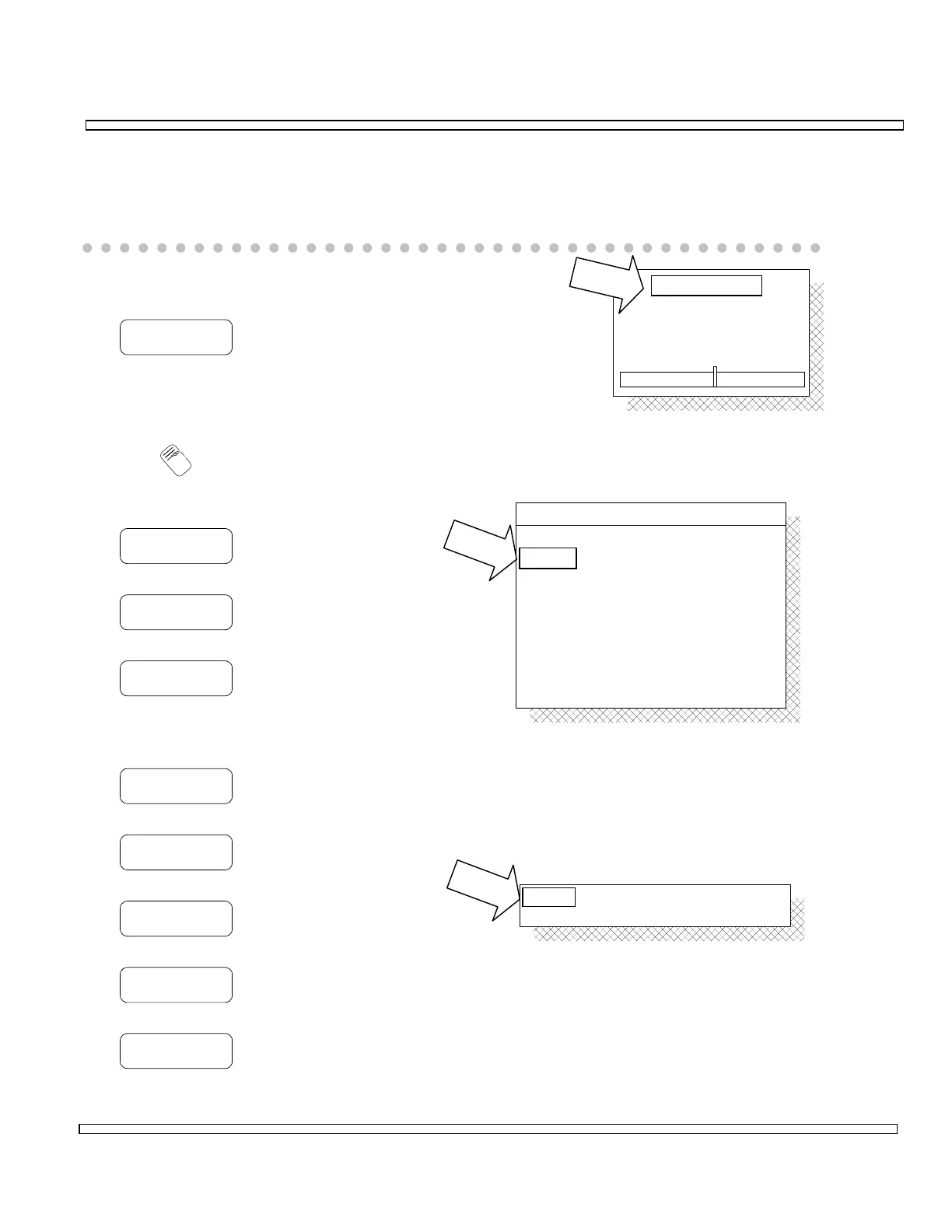4-49
SECTION 4
OPERATION
4-2-9 RF FREQUENCY ERROR METER OPERATION
The RF Frequency Error Meter for the RF Receiver measures the frequency of the
received RF Signal and reports the error.
Configure and operate the RF Frequency Error Meter as
follows:
ZOOM
Displays full screen RF Frequency Error Meter.
o Enter RF as required.
O
T
e
n
Editing RF field affects level on RF Receive Operation Screen.
Select IF Bandwidth as follows:
300 kHz
Selects 300 kHz IF Bandwidth Filter.
15 kHz
Selects 15 kHz IF Bandwidth Filter.
30 kHz
Selects 30 kHz IF Bandwidth Filter.
Select Range as follows:
100 Hz
Selects 100 Hz range.
1 kHz
Selects 1 Hz range.
10 kHz
Selects 10 kHz range.
100 kHz
Selects 100 kHz range.
AUTO
Selects Autorange.
-100 kHz
RF ERROR
- 0.034 kHz
104.999966 MHz
100 kHz
105.0000 MHz
30 kHz
ON
ON
OFF
1.0 S
RF:
IF BW:
Peak Hold:
Average:
Upper Limit:
Gate Time:
Alarm:
ON
Range:
10 kHz
5000 Hz
2
RF FREQUENCY ERROR METER
Peak Hold:
ON
Range:
10 kHz
